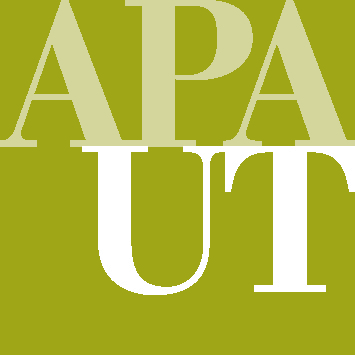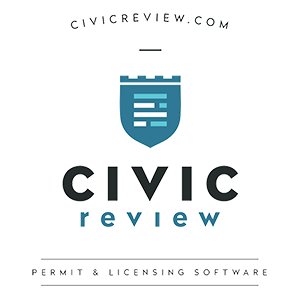CLAMOR IS KING –PART II
June 10, 2022 by admin
Policy/Legislative
By: Paul Allred, M.S. (AICP 1994) Municipal Planner 1987-2002, 2004-2021.
It is not a fairy tale or just our imagination that Salt Lake City just broke its all-time record for lowest vacancy rate at just 2% (Salt Lake Tribune). A Realtor friend recently explained that there were only a few dozen homes for sale in the whole Salt Lake Valley. In response to the massive on-going housing shortage, some developers are naturally turning to higher density projects such as apartments, townhomes, etc. Even so, where any type of housing — especially higher density housing is proposed –and this is well documented far and wide in the U.S. — it is most often opposed by older, white, well-off, people. This opposition often results in the hypocritical denial of housing access to those who are now in the same situation as the “well-off” were once upon a time in their own life.
Generally speaking, weren’t we all in need of an apartment at least during college or while saving up for our own home? Most of us did not immediately graduate from high school to our first single family home, right? My own personal experience in the early-mid 1980’s was a bit scary in terms of finding flexible housing arrangements. In the university town where I went to school, my fiancé and I scoured local newspaper ads (No internet yet) looking for an apartment to rent for the upcoming semester after our wedding. There simply were none to be found week after week. We finally started knocking doors on apartments in a desperate attempt to find suitable lodging and as luck would have it, we found another married couple who said they were thinking of moving and indicated we could take over their contract. Hooray…and whew!!
That experience has stuck with me for the last 39 years and as I reflect upon it, it still makes me uncomfortable. There are likely many reasons that there was a shortage of apartments back then, but unquestionably local opposition to new multi-family was pervasive. Many of the long-time homeowners looked down their noses at the students as some kind of necessary evil. Yeah right; students whose very existence in their community provided them endless inexpensive services, youthful attitudes and energy including all the university sponsored events, and ultimately, through their rent, wealth for countless landlords. But in their view, renters were disposable, even despised.
After being a municipal planner for about a year, I guess we finally became respectable people when we bought our first single-family home. No more sneers, no more dismissive comments, no longer dismissed. But, as my career progressed, I began to notice the numerous negative comments at public meetings about apartments, condos, etc., and especially the prejudiced comments and attitudes towards people who inhabit them. It got me to thinking. I rented for a few years as a student and then saved up to be able to afford a 10% interest mortgage for our first home. Just what was it that made me, my wife and infant so undesirable as renters but perfectly accepted and included “homeowners”?
My point here should be obvious. Addressing our housing crisis here and in other parts of the nation, will require increased efforts to set aside our insistence on using subjective and tired zoning schemes as a tool for economic and social segregation. Even more importantly, what is essential is a washing away of old, and frankly lame, attitudes towards our fellow human beings. Renters and the property they inhabit are not scum. Single-family dwellers are not superior humans because of the size and type of structure they inhabit.
To illustrate a small point in this regard, I recall a particularly ugly public hearing many years ago where the public was opposed to a very nice apartment project that included a very much needed donation of several acres of land by the developer for a city park that was called for in the General Plan. The General Plan also specifically indicated the proposed location as appropriate for higher density housing as it was relatively near freeway access, was positioned on the edge of existing low-density neighborhoods and would be immediately adjacent to a growing commercial district. Additionally, over a period of years we’d gotten requests from young married adults, service workers, college students and older singles and couples for smaller, more flexible living spaces that the proposed apartments would provide.
During the packed Planning Commission public hearing one gentleman (White, middle-aged and well off) flatly stated, to following cheers, “I don’t give a damn about my adult children living in this community until they can afford to buy a home here like I did”! Additional comments (No joke) heard during the process:
- “We don’t want a bunch of single moms, prostitutes, or drug addicts living near us”
- “Crime will go off the chart if the apartments are allowed”
- “We don’t want to go to a park next to apartments because the apartment people will use it and ruin it for the rest of us”
- “The apartments will overload our Elder’s Quorum with people moving in and out”
- “I don’t want my church donations to be given to anyone living near me”
- “The schools will be overwhelmed with all the kids that will move in”
- “The roads cannot support the additional traffic and children will be endangered”
In the process of this proposal, my supervisor and I were summoned to an early morning meeting with the local LDS Stake President whose boundaries included the project. We were unpleasantly surprised by this recent former member of the city council that we’d both served, with stinging criticism for supporting the proposal and for upsetting at least two of his Bishops (Both of whom had spoken at the hearing in their ecclesiastical identity) for what the project would mean for them and their congregations. Our jaws dropped momentarily. He waited for our response. Deep breath. We gently but firmly reminded him of the General Plan language and indicated that there was strong support from the current Mayor to get a city park built in the only part of the city without one. We left that meeting shaking our heads and lamenting the painful reality of trying to move anything — except commercial or single-family homes – through the land use process as well as the rebuke from someone we’d worked with arm-in-arm on the governing body. In the end, the development was not built as the opposition proved too great to overcome. For me, the decision was the wrong one; not because the clear goals and ideals of the General Plan had been thwarted, but rather because of the lack of rational, logical and long-term thinking used to arrive at the decision.
Hopefully most readers here have not had the displeasure (Read: Disgust) with this kind of political/cultural pressure. This type of interaction can and does inject a “chilling effect” on those processing the applications and participating during hearings – particularly in smaller communities. Often this situation causes a serious internal conflict for them as they calculate the risk of following established Plans and policies previously approved by the governing body versus the risk of greater public pressure and even animosity towards them for taking ethical and principled positions.
Undoubtedly, most, if not all, chapter members have similar “war stories” from public hearings they have attended which begs these questions:
- “What, if anything can be done to reduce the amount of emotion, fear and just plain old ignorance that often overwhelms many residents when development, especially high-density residential development, is proposed”?
- What tried and true strategies are used by you professionally or your employer in these situations? What have you found to be most effective?
- What suggestions/ideas do you have for other professionals and the boards, councils and commissions you serve to facilitate informed, courteous and ample public input?
- What person, more than any other you have seen, demonstrated the most impressive way to deal with difficult situations, people, proposals? What specifically did they do that can be shared with others?
Now, for some fun and learning. I want to invite everyone to share the most silly, uninformed, mean, ugly, threatening, irrational, illogical, etc., comments they have encountered in the public process. Once gathered, we’ll share in a follow up article – for some laughs and more importantly for some thoughtful examination with the idea that perhaps we can create a template for how to effectively guide and influence others in this area. Please send any input to pablotodorojo@gmail.com . And, thanks for listening.
Recent News
- » Hurry, it’s the final week to grab your conference tickets at regular prices!
- » 2024 APA UT Spring Conference: Cedar City, UT. The Call For Sessions is Currently Open.
- » As Post District nears its grand opening, only some restaurants will be ready
- » Planning in the news: BYU students aim to eliminate parking woes through AI tracking system
- » Planning in the news: Living in Daybreak- What residents say the Utah community is really like
- » Planning In The News: Planning Commission green lights proposed ban on gas stations near waterways and parks

































